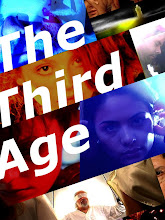X-Men: God Loves, Man Kills
Back when I did my writeups of Chris Claremont’s original X-Men run, I skipped one of the most acclaimed parts of that run, the graphic novel “God Loves, Man Kills.” Unlike some people, I don’t consider GLMK one of the best things Claremont’s written, primarily because the standalone format doesn’t really play to his strengths. However, it’s perhaps the best book to give someone who’s never read a Claremont X-Men comic, a primer for the sort of stories he told on the main book for many years, mostly devoid of the stranger, more “comic book-y” tropes that could cause problems for people who aren’t used to those elements. It’s still a superhero comic, but one that aspires to, and generally succeeds in achieving real world relevance.
I feel like at some point I should do a post on the ten greatest critical misconceptions surrounding the X-Men, one of the biggest being that everyone’s just been redoing Claremont/Byrne for the past twenty-five years. The Claremont/Byrne run lays the groundwork for much of what followed, but if one book cemented the popular perception of the X-Men as heroes fighting for a world that hates and fears them, it’s this one. Nowhere is the Professor X as Martin Luther King, Magneto as Malcolm X divide more clearly articulated, and rarely was anti-mutant sentiment so big an issue in the main book.
The second X-Men film was a loose adaptation of this book, in many ways a toothless one, since it stripped the story of its most biting, and relevant, piece of social commentary, the conflict between conservative religious figures and mutants. In a world where Evangelicals dispute the existence of evolution, how would they treat mutants? Probably not too well. I love the fact that Claremont makes such an explicit statement against religious motivated bigotry, a move that’s more relevant today than it was when the book came out. Yes, Stryker exists more in the world of superhero comics, I don’t think most preachers have death squads going around in their name, but in the context of a superhero genre work, it makes sense.
My major issue with the book is that it doesn’t have much relation to continuity or the ongoing narratives that make up Claremont’s best work. The thing I loved about reading his whole run was seeing the way that events built on each other and characters changed as a result of what they experienced. This is kind of a standalone book, so even though it has some nice character moments, you don’t get the added payoff of watching it build to something else.
But, as a standalone piece, it holds up as an edgy, and still relevant political commentary. I think the X-Men work best, on a thematic level, if they’re fighters for the future. That’s how I saw them in Grant’s run, and it’s how I see them here. They may be hated and feared, but they’re fighting for more than their survival, they’re fighting to raise tolerance and make a new and better world. In the traditional X-Men paradigm, where they’re a superhero team, the peaceful approach doesn’t make that much sense. If you’re battling people out to kill you, it’s hard to be Gandhi, and it’s hard to make that work for stories. However, this story makes clear why the X-Men approach is frequently preferable to Magneto’s. They don’t want to remake the world by force, and turn humans into an oppressed majority, they want to make a world where everyone can be accepted, and humans can accept mutants. Much like The Invisibles, they don’t want to kill the enemy, they want to save them.
But, the whole metaphor becomes a bit different when mutants have such dangerous powers. If I was writing the X-Men, I would do an arc about a teenager who discovers he’s got huge powers and doesn’t use them responsibly, he uses them to get whatever he wants, and make people do his will. I don’t think the X-Men fighting supervillains is that interesting, but how would they deal with someone who’s using their mutant powers for self gratification with no social responsibility whatsoever? Think of the cornfield episode of the Twilight Zone, how do you fight back against that?
Much as I love Claremont’s take on the concept, I do think new writers could tell interesting stories taking the X-Men out of a superhero paradigm and thinking more about what it means to be post-human. That’s what Grant was doing, and I think others should continue the exploration. This story is a step towards that, probably the most ‘real world’ of any Claremont X-Men story.
That’s not to say it’s totally removed from his traditional stuff. There’s some great material with Kitty and Magneto. I’m not sure if this is meant to be before or after 150, but the connection between them is cemented. One of the things I like about Magneto’s holocaust background is the way it gives a very clear motivation for his antagonism towards humans. He cannot be naïve and hope for a better world like the X-Men do because he’s of a generation that’s seen such terror. Kitty hasn’t suffered through that, and as a result, she’s able to believe in peace. And, seeing through her eyes, Magneto has the chance to redeem himself. Not every generation is going to as scarred as he is.
In the end, this isn’t my favorite X-Men story, but it’d be a great intro for someone looking to get into Claremont. It distills a lot of central X-Men into one convenient package, and is a compelling enough story in its own right. In the future, I’m hoping to review some of the Claremont miniseries from the era of his X-Men run, as well as continue looking at Grant’s work on the book. So, stay tuned for more X-Men.




No comments:
Post a Comment